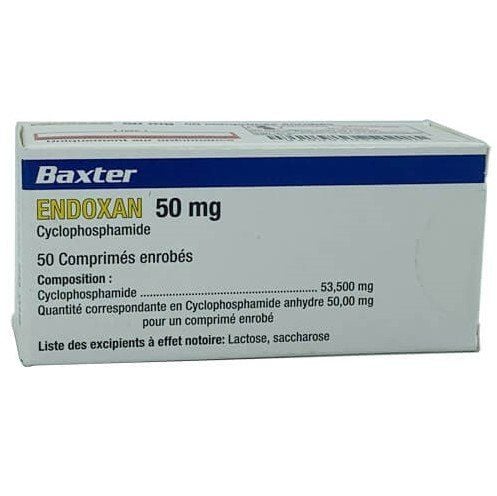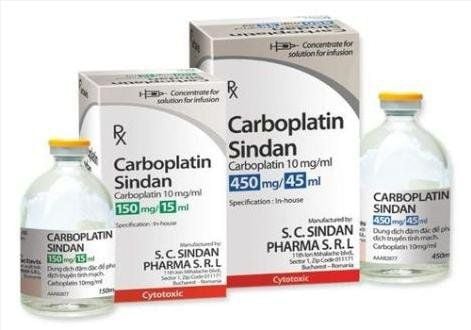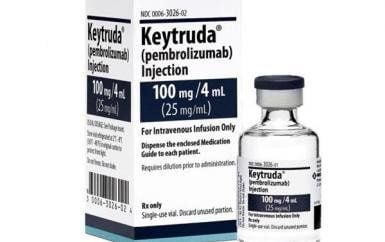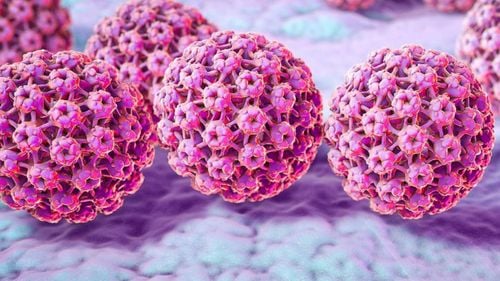This is an automatically translated article.
Carbotenol is a drug indicated in the treatment of ovarian, lung and other common cancers. Because the drug has the risk of causing unwanted side effects affecting other functions of the body such as kidneys, liver, heart... Therefore, before taking Carbotenol, patients should carefully read the instructions for use and Follow the instructions of a specialist doctor.1. How does Carbotenol work?
Carbotenol medicine contains the main ingredient Carboplatin with a strength of 150mg/15ml. Carboplatin's action is antitumor and alkylated. This active substance has the ability to form cross-links within the same strand or between two strands of the DNA molecule to change the structure of DNA leading to inhibition of DNA synthesis.
Before having an anticancer effect, Carboplatin must also be activated via hydrolysis. Carboplatin is notable for being a more stable compound and is activated more slowly than cisplatin.
Clinically, carboplatin is relatively well tolerated by the body, highly effective for diseases such as ovarian, lung, head and neck cancers. In particular, the drug is suitable for patients with renal failure or at high risk of ototoxicity or neurotoxicity.
2. Indications and contraindications Carbotenol
2.1. Indications Carbotenol is indicated for patients with the following pathologies:
Ovarian cancer in patients in stage Ic to IV, after surgery, recurrence, metastasis after treatment. Lung cancer includes both small cell lung cancer and non-small cell lung cancer. Head and neck cancer, people with Wilms' tumor, brain tumor, neuroblastoma. Patients with testicular cancer, bladder cancer, advanced and recurrent retinoblastoma in young children. 2.2. Contraindications Do not use Carbotenol for the following cases:
People with severe myelosuppression, severe renal failure. Women who are pregnant, are breast-feeding or have a history of severe allergy to platinum-containing drugs.
3. Usage and dosage of Carbotenol
3.1. How to use Dilute the drug with 5% glucose solution or 0.9% NaCl solution to make a drug with a concentration of 0.5 mg/ml. Carbotenol is usually given intravenously over 15 minutes or as a continuous infusion over 24 hours, used for peritoneal injection. 3.2. Dosage of Carbotenol The usual dose of Carbotenol
Adults with normal renal function and no previous treatment use Carbotenol IV injection 400 mg/m2, then continue another course after 4 weeks. Patients who have been treated for renal failure, marrow failure, and irradiated with Carbotenol at a dose of 300 - 320 mg/m2. Carbotenol dosage for patients with renal impairment
Patients with Creatinine clearance 41-59 ml/min: Use with a starting dose of 250g/m2. Patients with Creatinine clearance 16-40 ml/min: Use with an initial dose of 200 mg/m2. Carbotenol dosage for treatment of ovarian cancer by stage
Advanced cancer (patients in stage III and IV) Use with a starting dose of 300 mg/m2. Continue use after 4 weeks or longer if the hematologic toxicity is slow to recover and adjust the dose according to the decrease in platelets during the previous treatment. Note that a total of 1 treatment session is 6 times.
Cancer recurrence Use with a starting dose of 360 mg/m2, once every 4 weeks. Dosage adjustment should be made according to the degree of platelet reduction of the specific previous administration:
In case of insignificant hematological toxicity (Test showed platelets above 100,000/mm3 and neutrophils above 2,000 /mm3) it is necessary to increase the dose of Carbotenol by 25%.
In case of mild to moderate hematological toxicity (Test showed platelets 50,000 - 100,000/mm3 and neutrophils at 500 - 2000/mm3), the next dose should be maintained at the same dose as the previous dose.
In case of moderate to severe hematological toxicity (Test showed platelets less than 50,000/mm3 and neutrophils less than 500/mm3), it is necessary to reduce the next dose to about 25%.
In the event that there have been 2 dose reductions to 50% of the original dose and the platelet count is still moderate to severe, then the patient should be replaced Carbotenol with cisplatin because cisplatin has lower bone marrow toxicity .
Treatment of other cancers using Carbotenol is similar to ovarian cancer.
4. Carbotenol side effects
Carbotenol has a risk of causing some side effects such as:
Common side effects: Nausea and vomiting, hypersensitivity, skin rash, urticaria, abdominal pain, diarrhea, constipation, gastrointestinal ulcers caused by drugs, fatigue, pruritus, bone marrow depression. Uncommon and rare side effects: Anorexia, anaphylaxis, heart failure, cerebrovascular accident, arterial occlusion, uremia, hemolysis, blood pressure disorders, causing bronchospasm,...
5. Carbotenol drug interactions
Combined use of Carbotenol with some other drugs may cause bone marrow depression or radiation therapy will increase blood toxicity. In case of need to use the combination, the patient should be carefully monitored and the dose and duration of the drug must be adjusted so that the toxicity is at an acceptable level.
For patients who have taken anti-cancer drugs before, because the toxicity on the blood is often more severe, the use of Carbotenol may increase the toxicity on the gastrointestinal tract, nerves, on hearing and vision.
Do not combine with aminoglycoside will cause kidney toxicity.
When combined with drugs such as aminoglycosides, furosemide, ifosfamide will increase the toxic effect on hearing of Carbotenol.
Co-administration with Warfarin will increase the effect of drugs that can cause bleeding.
Taking Carbotenol with phenytoin may cause low levels of this medicine.
6. Precautions while using Carbotenol
Patients on drug therapy must have weekly hematology tests because Carbotenol can easily cause bone marrow failure. From here, the decrease in white blood cells easily leads to infection, and the decrease in platelets easily leads to bleeding. Especially patients who have previously taken bone marrow suppression drugs or received radiation therapy, people with kidney failure are very susceptible to bone marrow failure.
Must closely monitor renal function through determination of creatinine clearance, do not use Carbotenol for people with severe renal impairment.
Carbotenol should be used with caution in the elderly (over 65 years old) because the drug is easily neurotoxic, causing peripheral neuropathy, renal failure and leading to myelosuppression.
Above is some information about Carbotenol drug. Because this is an anti-cancer drug, patients should only use Carbotenol under the close supervision of an oncologist, there must be means to handle complications due to possible anaphylaxis including: oxygen respirator, epinephrine, corticosteroids, antihistamines....













